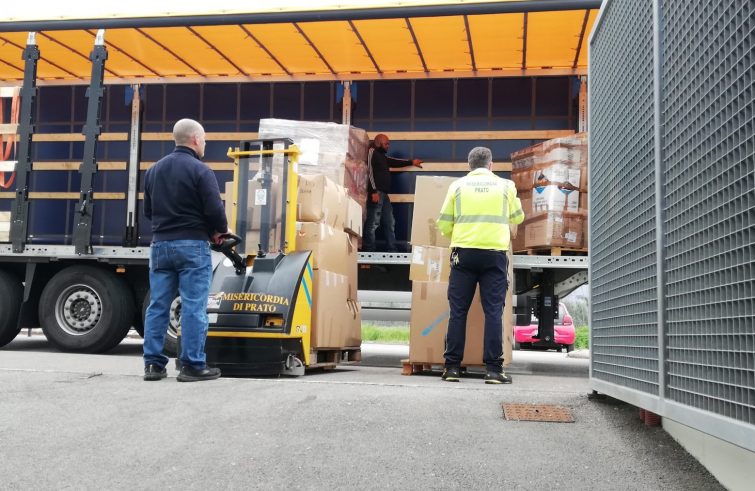
(from New York) – During the night of February 23, Mariia – originally from Kyiv – was preparing for the tennis tournament between California State University, where she was studying, and the University of Hawaii. A Telegram message from her mother, still awake at an unusually late hour, revealed the bitter truth: Russia had started invading her country.
With her, another 1,739 Ukrainian students who were studying for their undergraduate, master’s or doctorate degrees in the United States discovered what had happened. They learned that their country was at war via social media.
Colleges and universities in California, Massachusetts, Florida, Illinois, Texas and New York, where they are pursuing their studies or completing their research, found out the same way. Public demonstrations on campus were the first visible signs of solidarity shown by other students and faculty, to be followed by fundraising efforts and counselling of all sorts to ensure that these young Ukrainians will continue their plans for the future despite the conflict.
Realising that the chance of a career had also been disrupted for many of the students displaced from major Ukrainian cities, the University of Chicago
did its utmost to increase admission and financial support for war-affected students who are considering giving up their courses overseas,
“The invasion of Ukraine, and the devastating humanitarian crisis unfolding as a result, has multifaceted consequences, including the disruption of the lives and the careers of scholars and students whose academic achievements could benefit humanity,” said University of Chicago President Paul Alivisato, explaining his plans for admissions.
Princeton University has also offered to support Ukrainian and Russian scholars forced to flee because of the war.
Two Harvard University freshmen have come up with a creative way to help refugees. They launched a website – https://www.ukrainetakeshelter.com/ – designed to connect people fleeing Ukraine to those in safer countries willing to provide temporary housing.
Mariia, who was supposed to return home in a few weeks, will stay on campus during the summer, thanks to a special scholarship and the support of her faculty.
More than 2,000 Ukrainians have arrived at Mexico’s border in hopes of entering US soil where they hope to remain, hosted by relatives who have offered to house them.
After President Biden promised to take in 100,000 Ukrainians, many left from Romania and Moldova headed to the US southern border. Some of them have reached Mexico from Spain. Many have applied via legal procedures, but no detailed admission plan was received by the US embassies after the president’s promise, so applications for tourist visas were turned down, forcing families, young people and mothers with children to attempt entering the United States from the Mexican border. The border town of Tijuana is facing an immediate challenge of welcoming more than 500 Ukrainians in less than ten days. It converted a gymnasium into a dormitory, but it’s not enough to cope with the emergency.
Many Russian-speaking US citizens have been doing their best to help the refugees across the border by providing food, blankets and mats.
They include office workers, real estate agents and managers who have taken a ten-day or even a month-long leave of absence to help the refugees.
Makeshift camps with yellow and blue flags have been set up next to those of Haitians, Hondurans and Cubans.
The latter have been arriving in record numbers, unseen in almost three decades, according to border guards. The same applies in the case of Nicaraguans. More than 50,000 have attempted to cross the border in 2021, compared to approximately 2,300 in 2020, amid continuing crackdown by Daniel Ortega’s government.
The humanitarian crisis now risks spreading to this side of the world, in a sort of dramatic competition between desperate people.
Ukrainians sleep on chairs or makeshift mats, but are given sandwiches and biscuits and manage to reach the checkpoints after three days.
After a 40-hour journey from Bucharest to Tijuana, Lena, a psychologist who fled the south-western Ukrainian city of Chernivtsi with her three-year-old son, was granted entry number 920 and will now head to Oregon, where she is expected by friends. After crossing the barbed wire fence, mother and son were photographed, their fingerprints were taken and
their passports were stamped with an expiration date of April 3rd, 2023, reminding them that they have one year to regularise their immigration status.
They are not the only ones facing this situation. After ten days living on small amounts of water and food, two sisters who fled from a village near Kyiv were convinced by their parents to attempt the journey to the United States. They had no intention of leaving, but at the moment there is no other option. Their entry number is 1,201. Vans from the evangelical orthodox church Calvary San Diego, based in nearby Chula Vista, California, are waiting on the other side of the fence. The congregation is mobilised to assist the Ukrainian refugees. Many sleep on the pews of the shrine, mostly men. Women and children rest on inflatable mattresses as they wait for new volunteers to help them organise their journey to their final destination.











